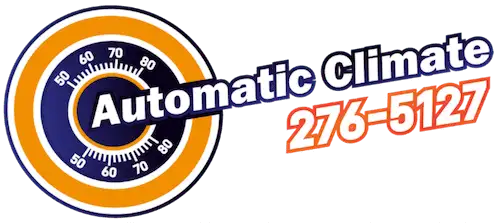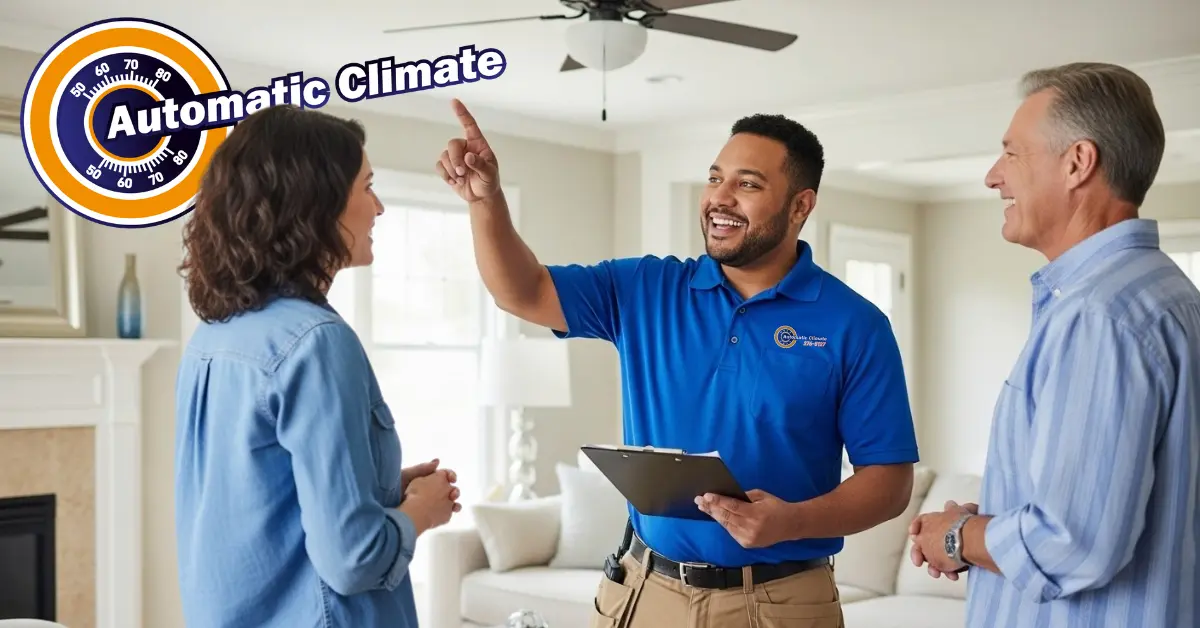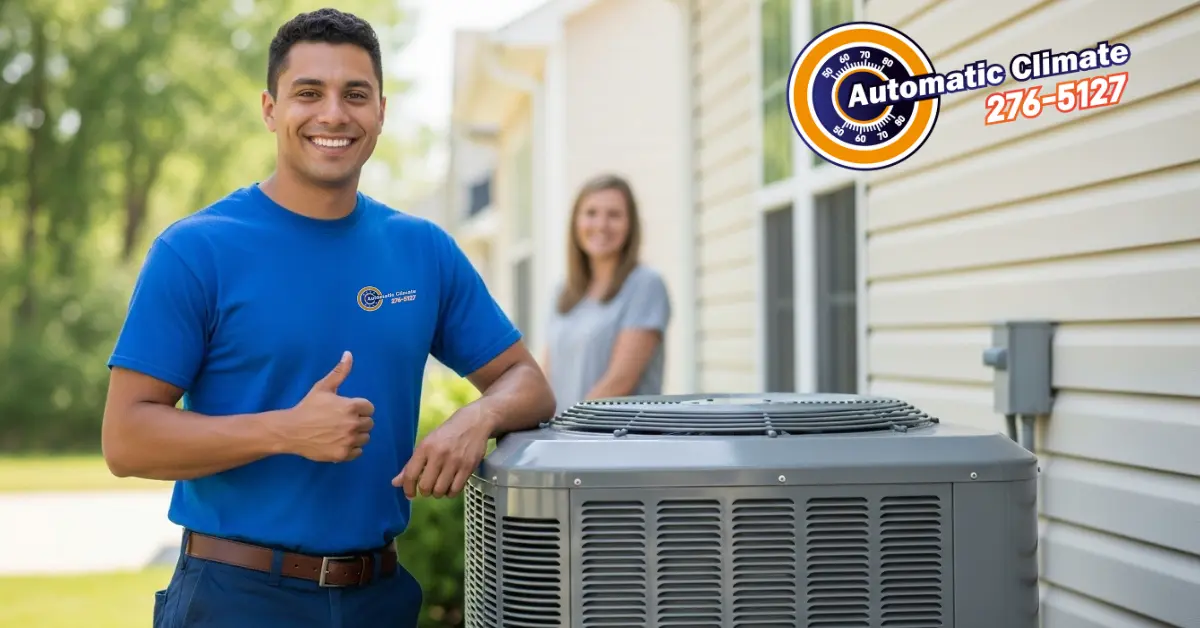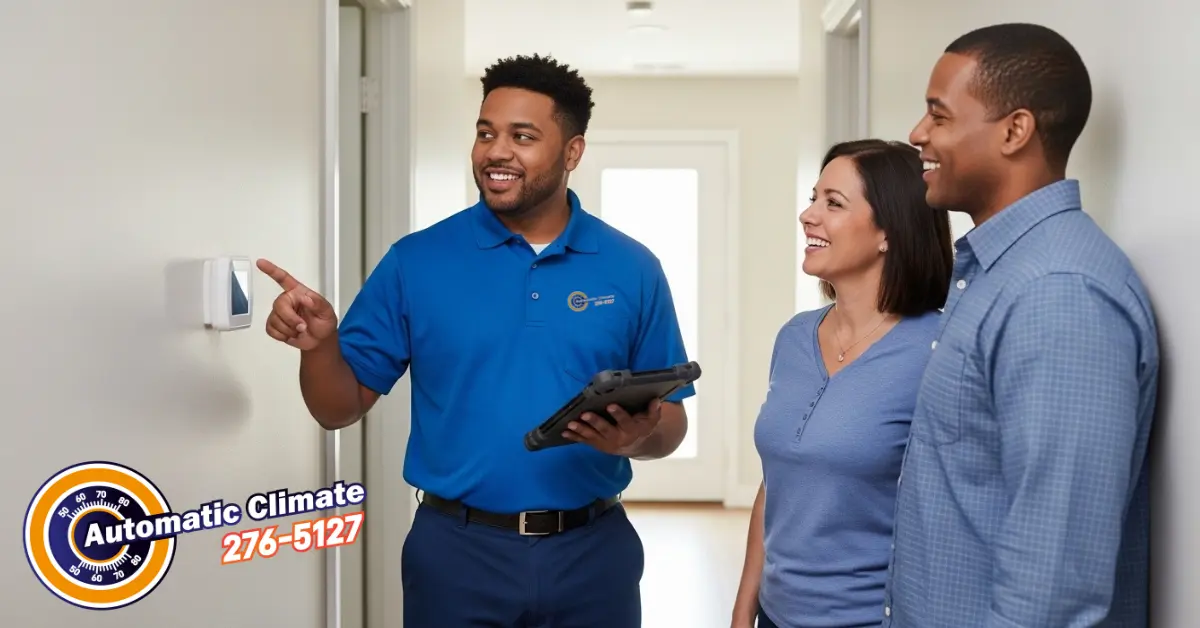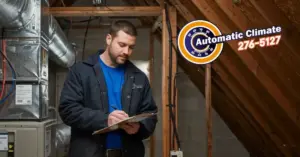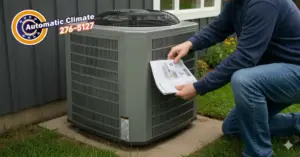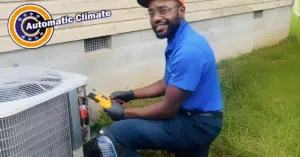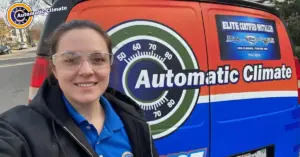Anxious because the fan on my outside AC unit not running? Your Ultimate Troubleshooting Guide
Written by Cole Summers at Automatic Climate in Richmond, Virginia.
That Sinking Feeling: When Your AC Goes Silent
It’s a feeling every homeowner in Richmond dreads on a sweltering summer day. You notice the air in your home is getting a little… stuffy. You walk over to the thermostat, see that it’s on, but the comforting rush of cool air is missing. A quick peek outside confirms your fear: the fan on my outside AC unit not running. It’s a moment of pure panic. Your mind races with thoughts of expensive repairs and sleepless, sweaty nights. But before you hit the panic button, take a deep breath. The reason for the fan on my outside AC unit not running might be simpler than you think.
This guide is here to walk you through the potential culprits, from easy DIY fixes to signs that you absolutly need to call in the pros. We’ll explore why the fan on my outside AC unit not running is a common issue and empower you with the knowledge to diagnose the problem. Understanding your HVAC system is the first step to maintaining it, and as Benjamin Franklin wisely said, “An investment in knowledge pays the best interest.” When it comes to your home’s comfort, that knowledge can save you time, money, and a whole lot of stress.
Many people immediately assume the worst, but a stationary fan blade doesn’t always spell doom for your entire air conditioning system. It’s a critical component, for sure. The outdoor unit, or condenser unit, is where the heat absorbed from your home gets released. The fan is essential for this process, blowing air across the condenser coils to dissipate that heat. If the fan isn’t spinning, the heat exchange cant happen, the refrigerant won’t cool, and your system will likely shut itself off to prevent catastrophic damage. So, while a non-spinning fan is a serious problem, it’s a symptom, and we need to find the cause. Figuring out why the fan on my outside AC unit not running is our primary mission.
First Things First: Basic Checks You Can Do Yourself
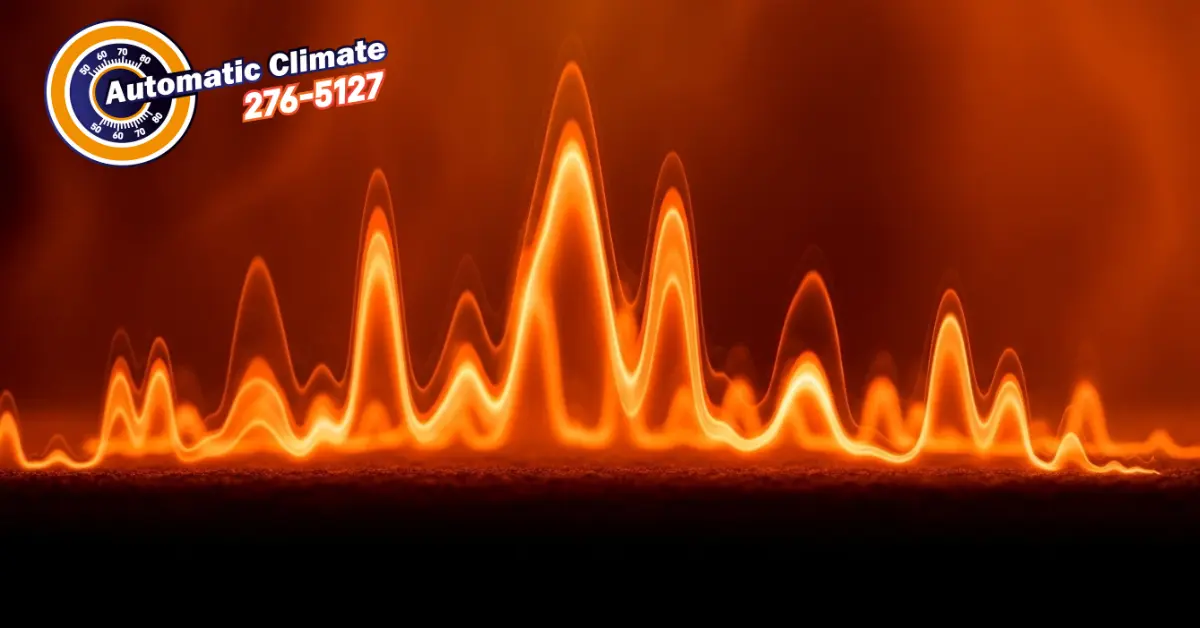
Before you even think about grabbing tools or calling for help, there are a few preliminary checks to perform. These might seem obvious, but you’d be surprised how often the simplest thing is the root of the problem. When you find the fan on my outside AC unit not running, dont just stare at it—interact with your system.
- Check the Thermostat: Is it set to “cool”? Is the temperature setting lower than the current room temperature? Sometimes a family member might have changed the settings. Ensure it has power and the display is working correctly.
- Check the Power: Your outside unit has two main power sources: the circuit breaker in your main electrical panel and a disconnect switch, usually in a metal box mounted on the wall near the unit itself. Check the breaker first. If it’s tripped, reset it once. If it trips again immediately, do not reset it again—this indicates a more serious electrical problem. Then, check the outdoor disconnect. Some have a pull-out handle or a switch. Make sure it’s in the “on” position. These two steps are crucial when diagnosing why the fan on my outside AC unit not running.
- Look for Obstructions: Is there anything physically blocking the fan blades? Twigs, leaves, a stray toy? Power down the unit completely before you even think about reaching in there. A fan that suddenly starts could cause serious injury. This is a common and easily fixable reason for the fan on my outside AC unit not running.
Our Trusted Partners
EXCELLENTTrustindex verifies that the original source of the review is Google. Aaron J. Visited our home later this evening to follow up with today’s install and the system checked out as it should. The only issue we had was connecting and setting up the wireless thermostat due to the app issues. He was very professional and patient. John and Joe replaced our 2nd floor gas heating system in a professional manner. Everything went smooth according to them and they finished the job in less time than expected. Aaron was professional and extremely thorough during his visit to our home. He took the time to explain the workings of our HVAC system and answered every question. To add to the above, I called the office and spoke with both Austin and Jason who were also very helpful while explaining the warranty and transfer of same. We are extremely pleased with Automatic Climate and will highly recommend to anyone who may ask for recommendations.
Owner's reply
Thank you for sharing your positive experience! We're thrilled Aaron, Austin, and Jason could assist you so thoroughly. Your recommendation means a lot, and we're glad we could help with your HVAC system and warranty details.Posted onTrustindex verifies that the original source of the review is Google. I had a very positive experience with them. They had better financing options, better prices, and were more responsive than other companies I got quotes from. Michael Chris and the whole team were fantastic. Highly recommendPosted onTrustindex verifies that the original source of the review is Google. Technician was on time, personable and professional. He throughly explained everything that he was going to do and identified any concerns. Very pleased with the overall experience and would recommend to other homeownersPosted onTrustindex verifies that the original source of the review is Google. I had the coils cleaned in my tankless water heater. Aaron Jernigan was so seemingly competent, so well-mannered, so good explaining what was going on, I am considering switching to Automatic Climate, I will definitely have all the vents in my house blown out in the near future.Posted onTrustindex verifies that the original source of the review is Google. Fast, friendly, knowledgeable and professional. Their associate, Casey J, helped fix our heat when we were enduring 20-30 degree nights. Thank you so much!!Posted onTrustindex verifies that the original source of the review is Google. Charlie was very dedicated. Provided excellent service. Very impressed with his dedication. Did check on HVAC and cleaned drier vent in Condo we purchased last summer.Posted onTrustindex verifies that the original source of the review is Google. I've been a customer of Automatic Climate for several years. I value the services of this firm. My commitment to renewing my maintenance contract year after year is directly related to the technical expertise of one of the company’s many representatives, Antonio Diaz. Antonio has kept all three of my units running smoothly for years, and when necessary forewarns me early of any pending issues. He offers solutions right away without long waits for follow up. I've never had to call the company back to correct any of his work. Antonio attributes his success and extraordinary customer service to the culture of Automatic Climate. I would recommend Antonio and Automatic Climate to any of my friends and neighbors. They're a company you can trust.
Owner's reply
Thank you so much for your kind words! We're thrilled to hear you had a positive experience with our service.Posted onTrustindex verifies that the original source of the review is Google. John & Nick were here today to clean our air ducts. They were very thorough and made sure that they left our home as clean as when they arrived. They explained the process clearly and worked efficiently. Great job!Verified by TrustindexTrustindex verified badge is the Universal Symbol of Trust. Only the greatest companies can get the verified badge who has a review score above 4.5, based on customer reviews over the past 12 months. Read more
If you’ve checked all these things and you’re still faced with a situation where the fan on my outside AC unit not running, it’s time to dig a little deeper. The next set of potential issues involves components inside the unit. Some of these can be addressed by a handy homeowner, but many will require professional attention. Remember, safety is paramount. Working with electricity and the high-pressure refrigerant in an AC unit can be dangerous. When in doubt, call a qualified technician from a trusted company like Automatic Climate. It’s better to be safe than sorry, especially when the comfort of your home is on the line. The persistence of the fan on my outside AC unit not running after these initial checks points towards a component failure.
One more thing to listen for: is the unit making any noise at all? If you can hear a humming or buzzing sound but the fan isn’t spinning, that’s a huge clue. It often points to a problem with either the fan motor itself or the component that helps it start, the capacitor. This humming tells you the unit is trying to work, its getting power, but something is preventing the motor from doing its job. This is a very common scenario when homeowners report the fan on my outside AC unit not running. We’ll get into the capacitor and motor issues in more detail shortly. But if there’s no sound at all, and you’ve confirmed it has power, the issue might be a bit more complex, possibly involving the contactor or other electrical relays within the system. Understanding these different sounds (or the lack thereof) is a key part of troubleshooting why the fan on my outside AC unit not running.
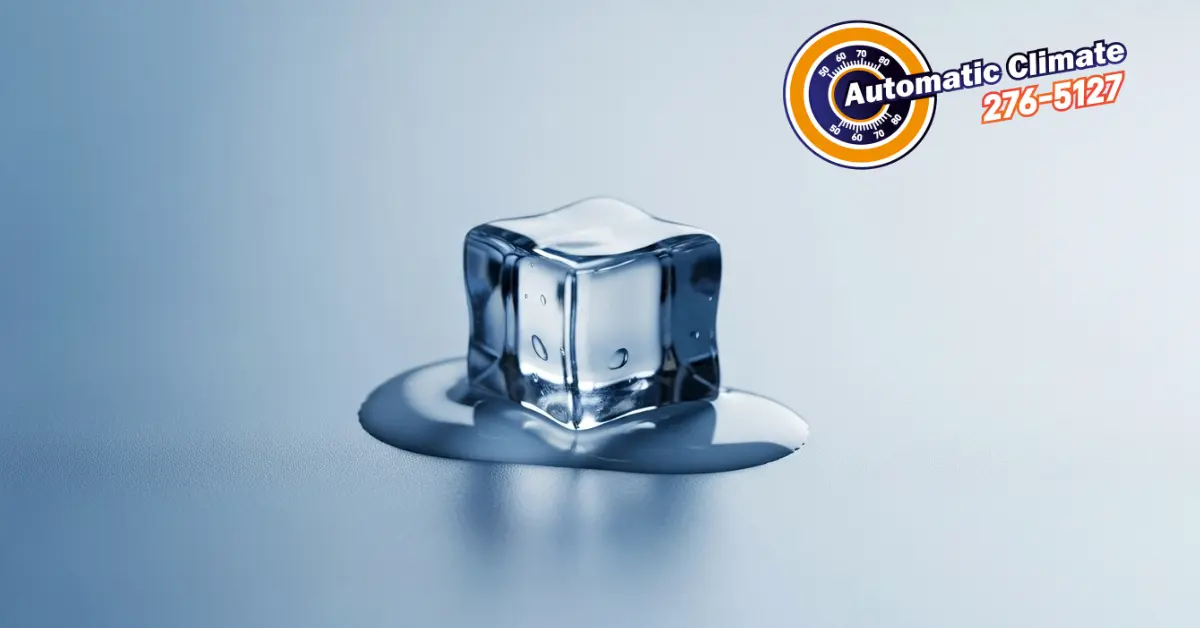
Initial AC Fan Troubleshooting Flowchart
NO →
NO →
NO →
Sources: Based on diagnostic procedures from Better Homes & Gardens and This Old House.
Common Culprits: The Capacitor and Fan Motor
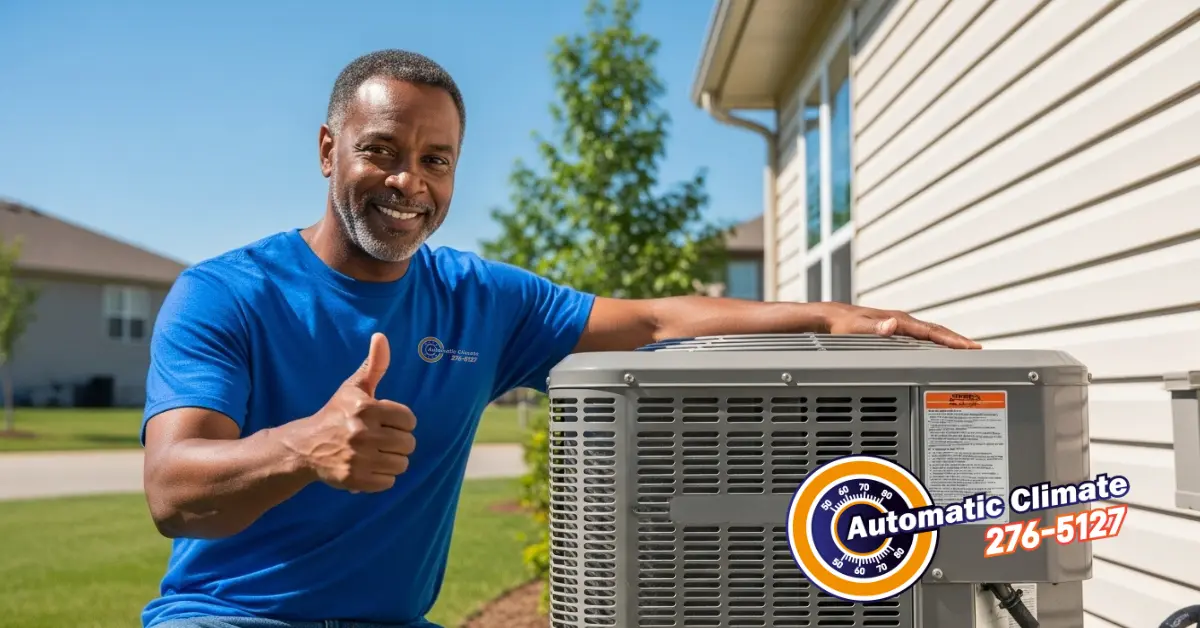
Okay, so you’ve done the basic checks, and you hear that ominous humming sound. This is where we get into the nuts and bolts of why the fan on my outside AC unit not running. More often than not, the issue lies with one of two components: the run capacitor or the fan motor itself. Let’s break down what they do and why they fail.
The Mighty Capacitor: A Small Part with a Big Job
Think of the run capacitor as a battery that gives the fan motor a powerful jolt to get it started and then provides a steady stream of energy to keep it running smoothly. It’s a small cylindrical component, usually silver, located inside the access panel of your condenser unit. When a capacitor fails, the motor doesn’t have the “oomph” to overcome inertia and start spinning. It will try, though, which is what creates the humming sound you hear. This is probably the number one reason why the fan on my outside AC unit not running.
SKip The Line! Schedule Your HVAC Service by Booking Online Now.
Get in Touch
Contact Us
Capacitors can fail for a few reasons. Age and heat are the biggest enemies. Sitting out in the hot Richmond sun for years takes its toll. A visual inspection can sometimes reveal a bad capacitor. If the top of the cylinder is bulging or domed, or if you see any fluid leaking from it, it’s definitly bad and needs to be replaced. However, a capacitor can also fail without any visible signs. A technician uses a multimeter to test its capacitance (measured in microfarads, or MFD) to be sure. Replacing a capacitor is a job that some DIYers tackle, but it’s critical to be extremely careful. Capacitors can hold a powerful electrical charge even when the power is off. You MUST know how to safely discharge it before handling. Failure to do so can result in a nasty shock. If you’re not 100% confident, this is a job best left to the pros at Automatic Climate, who handle these repairs daily.
The Fan Motor: The Heart of the Airflow
If the capacitor checks out okay, the next logical suspect is the fan motor itself. The motor can seize up due to worn-out bearings or internal electrical failure. If the bearings are shot, the fan shaft won’t be able to turn freely. You can test this (WITH THE POWER OFF!) by gently trying to spin the fan blades with a stick (never your hand!). If it feels stiff, grinds, or doesn’t spin at all, the motor is likely seized. A seized motor is another primary reason why the fan on my outside AC unit not running.
Overheating is a major cause of motor failure. If the unit is constantly struggling due to dirty coils or a failing capacitor, the motor works harder and runs hotter, shortening its lifespan. Lack of maintenance is a killer here. Debris and dirt can clog the condenser coils, restricting airflow and forcing the motor to strain. Eventually, it just gives up. This is why regular AC tune-ups are so important. A motor replacement is a more involved and expensive job than a capacitor swap, and it’s almost always a job for a professional. It involves disconnecting wiring, unbolting the motor from its mounting, and ensuring the new motor and fan blade are correctly installed and balanced. An improperly installed fan can cause vibrations that damage the entire unit. When the cause of the fan on my outside AC unit not running is the motor itself, it’s a clear sign to call for expert service.
It’s a chain reaction. A dirty filter inside your home makes the whole system work harder, which puts more strain on the outdoor unit, which can lead to a failing capacitor, which then leads to a burned-out fan motor. It all comes back to maintenance. As the great inventor Thomas Edison said, “The three great essentials to achieve anything worthwhile are, first, hard work; second, stick-to-itiveness; third, common sense.” Applying common sense through regular maintenance can prevent the headache of discovering the fan on my outside AC unit not running in the first place.
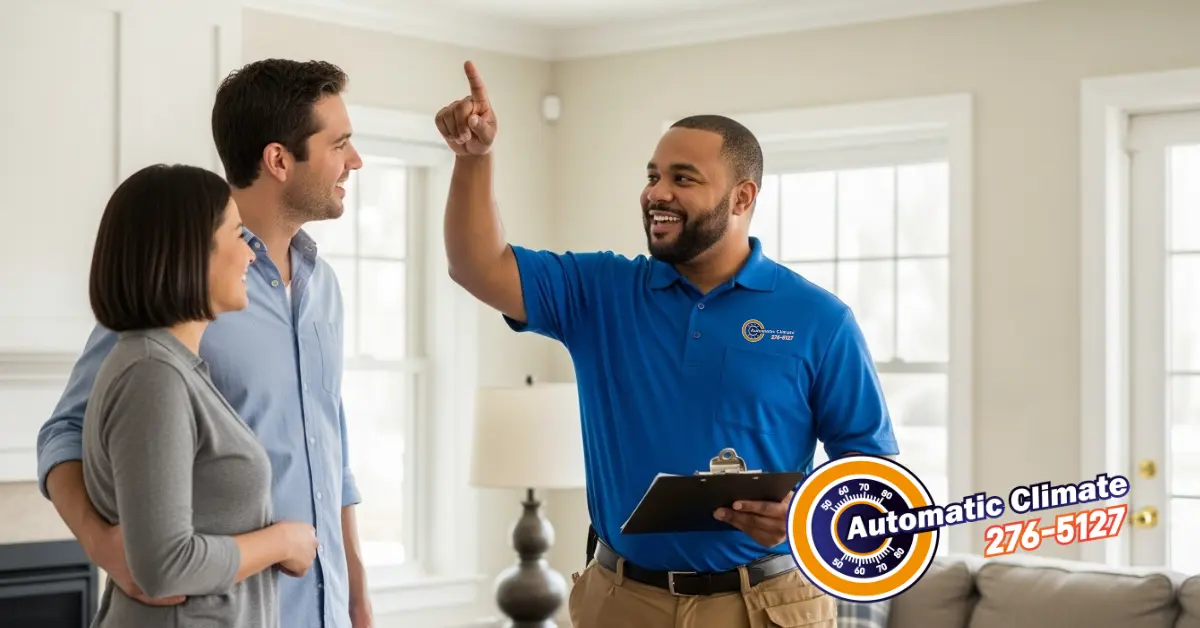
Preventative Maintenance to Keep Your Fan Spinning
Change Indoor Air Filters
Change your filter every 1-3 months. A clogged filter restricts airflow, making the entire system work harder and hotter, stressing the outdoor fan motor.
Clean the Outdoor Unit
Gently hose down the condenser coils from the outside to remove dirt, grass clippings, and cottonwood. Do this in the spring before you first use it. Ensure power is OFF first!
Keep the Area Clear
Maintain at least two feet of clearance around the entire outdoor unit. Trim back bushes, weeds, and remove any yard debris that could block airflow.
Schedule Professional Tune-Ups
An annual professional inspection can catch failing parts like capacitors before they cause a major breakdown, like the fan on my outside AC unit not running.
Sources: Maintenance tips compiled from ENERGY STAR guidelines and expert advice from HVAC resources like HomeTips.
Deeper Electrical Issues: The Contactor and Beyond
What if you check the power, the capacitor looks fine, the fan motor spins freely, but there’s no humming and absolutly no action from the outdoor unit? In this case, the investigation into why the fan on my outside AC unit not running moves to other electrical components. The most common culprit in this scenario is the contactor.
The Contactor: Your AC’s Gatekeeper
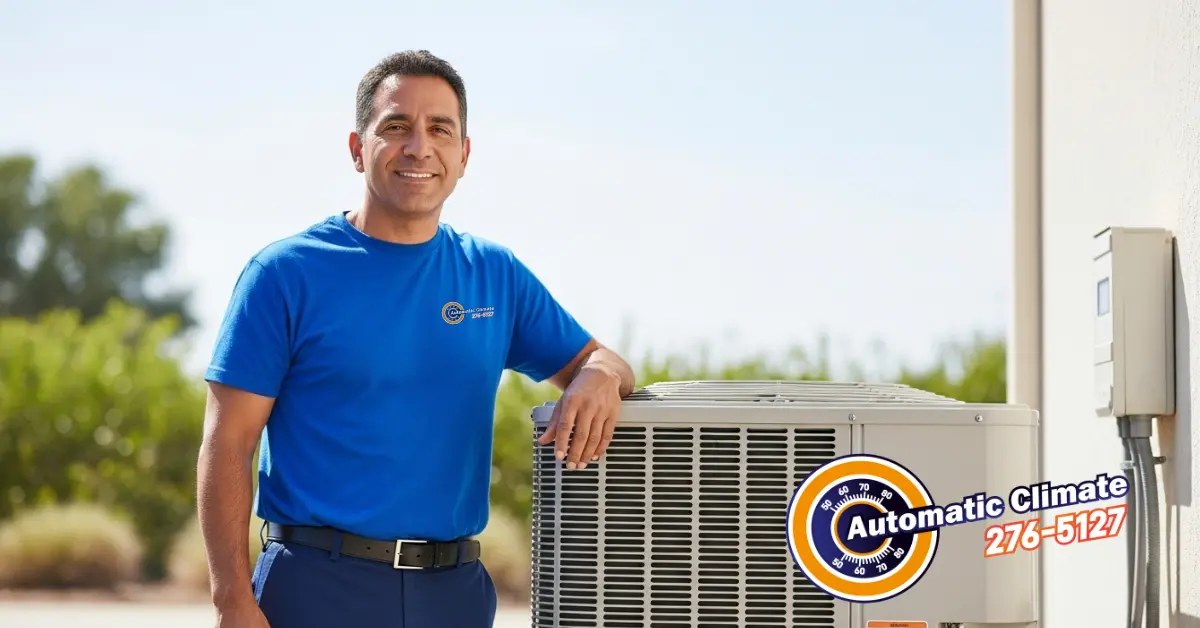
The contactor is essentially a heavy-duty electrical switch. When your thermostat calls for cooling, it sends a low-voltage signal (24 volts) to the contactor. This signal energizes a small electromagnet that pulls a plunger down, closing a circuit and allowing high voltage (240 volts) to flow to the fan motor and compressor. If the contactor fails, that high-voltage power never reaches its destination, and your unit will remain silent, even though it has power. This is a sneaky reason why the fan on my outside AC unit not running.
Contactors can fail mechanically or electrically. Sometimes, insects like ants are attracted to the electrical components and can get fried between the contact points, preventing a clean connection. A visual inspection (with the power OFF) might show pitted, charred, or burnt contact points. You can also manually (and carefully!) press the plastic plunger in the center of the contactor with an insulated tool. If the fan and compressor kick on when you do this, it confirms the contactor itself is the problem; it’s just not receiving the signal or is unable to engage on its own. Replacing a contactor is another task that requires electrical know-how. If you are not comfortable working with live electrical circuits, this is a job for a professional. A faulty contactor can be a frustrating puzzle when the fan on my outside AC unit not running because everything else seems fine.
When to Call for Backup: Automatic Climate to the Rescue
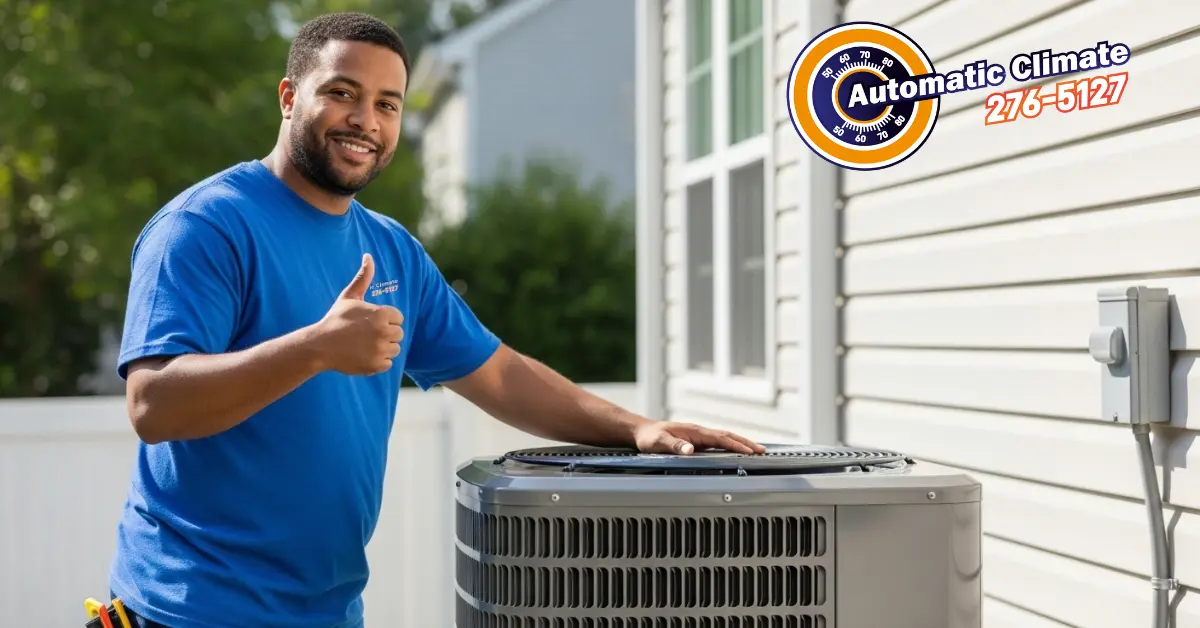
We’ve covered the most common issues, but sometimes the problem is more complex. It could be a wiring issue, a faulty control board, or even a problem with your compressor. A major red flag is if your circuit breaker trips repeatedly. This signals a dead short in the system that needs immediate professional diagnosis. Continuing to reset it can cause a fire.
Ultimately, your comfort and safety are what matter most. If you’ve gone through the basic checks and are still faced with a fan that won’t run, it’s time to call in the experts. A trained technician can quickly and safely diagnose the precise reason the fan on my outside AC unit not running. They have the tools, like multimeters and refrigerant gauges, to pinpoint the failure and the expertise to fix it correctly the first time. Trying a complex repair yourself without experience can often lead to more damage and higher costs in the long run. As the Roman philosopher Seneca said, “Luck is what happens when preparation meets opportunity.” You’ve prepared by learning about your system; now’s the opportunity to make the smart call.
Don’t Sweat It! Let the Pros Handle It.
Staring at a silent AC unit is stressful. If your troubleshooting journey has hit a dead end, or you’re just not comfortable with electrical work, we’re here to help. The experienced technicians at Automatic Climate can get your cool air flowing again, fast.
Or call us 24/7 at (804) 803-1983
Case Study: The Davis Family’s Mid-July Meltdown
- Client: The Davis Family, Richmond, VA
- Problem: Reported “fan on my outside AC unit not running” during a heatwave. The unit was humming loudly.
- Diagnosis: After confirming power, our technician immediately suspected a capacitor issue. A visual inspection showed the capacitor top was slightly bulged. A multimeter test confirmed it was operating at less than 10% of its rated capacity.
- Solution: The technician safely discharged and replaced the dual run capacitor with a new, high-quality part from their service vehicle. They also gave the condenser coils a quick cleaning to improve efficiency.
- Outcome: The fan started immediately upon power-up. The total time from arrival to a cool home was under 45 minutes. The Davis family avoided a costly motor replacement that could have resulted from letting the faulty capacitor continue to strain the system. This is a classic example of why addressing the fan on my outside AC unit not running quickly is so important.
Sources: Case study based on common service calls documented by HVAC industry leaders like ACHR News.
Your System is Talking to You – Are You Listening?
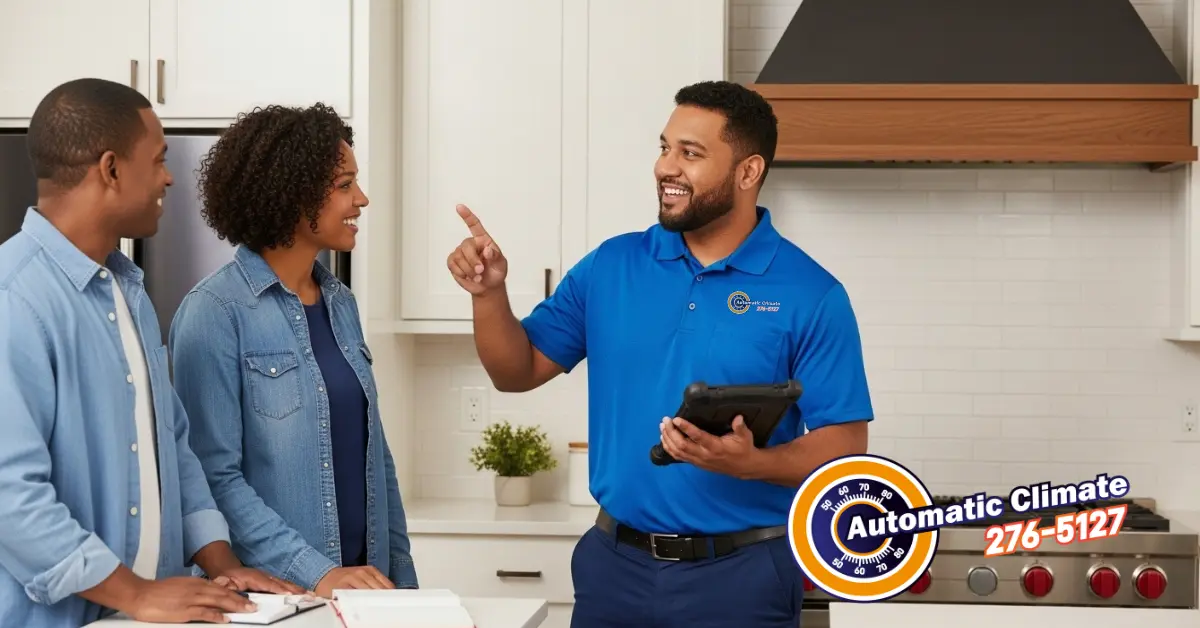
An air conditioner that’s not working is more than an inconvenience; it’s a message. It’s telling you that a part has failed, maintenance is overdue, or it’s simply reaching the end of its lifespan. Ignoring the initial problem—the fan on my outside AC unit not running—can lead to a cascade of failures. For example, a bad capacitor can destroy a fan motor. A struggling fan motor can put immense strain on the compressor, the most expensive component in your entire system. A compressor failure often means it’s more cost-effective to replace the entire outdoor unit.
This is why acting quickly is so vital. By troubleshooting the issue and calling for professional help when needed, you are protecting your investment and preventing a small problem from becoming a catastrophic one. A well-maintained AC unit not only keeps you cool but also runs more efficiently, saving you money on your monthly energy bills. The problem of the fan on my outside AC unit not running is not just about the fan; it’s about the health of your entire HVAC ecosystem. From the filter in your hallway to the coils outside, every part needs to work in harmony. Dont let a small issue today become the reason you need a whole new air conditioning installation tomorrow.
Think of the situation where the fan on my outside AC unit not running as a critical checkpoint. It’s a moment to assess the health of your system. Did it fail because of a random part failure, or is it a symptom of neglect? Regular maintenance is like a regular health check-up for your AC. It allows a professional to spot warning signs, clean vital components, and ensure everything is operating within spec. This preventative care is the single best way to avoid the stress and expense of an unexpected breakdown. When your system is running perfectly, you dont think about it. It’s only when the fan on my outside AC unit not running that you realize how much you depend on it. Let this be a lesson to give your HVAC system the attention it deserves, and it will reward you with reliable comfort for years to come. The goal is to never have to search for “why is the fan on my outside AC unit not running” ever again.
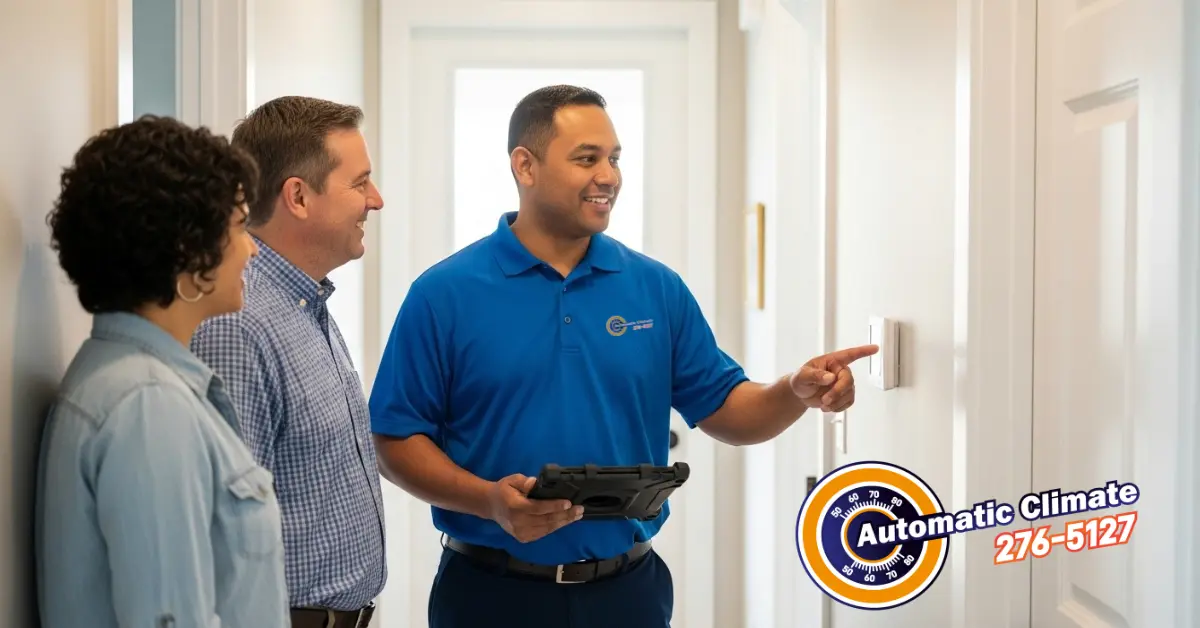
Frequently Asked Questions (FAQ)
1. Why is the fan on my outside AC unit not running but the inside unit is?
This is a classic symptom. The inside unit (air handler) and outside unit (condenser) are on separate circuits. This often points to a problem specific to the outdoor unit, like a bad capacitor, failed fan motor, or faulty contactor, which are the most common reasons the fan on my outside AC unit not running.
2. Can I just give the fan a push to get it started?
While a “stick start” can get the fan moving and might temporarily provide cooling, it’s very dangerous and only confirms a problem like a bad capacitor. The fan can kick on at full speed unexpectedly. It’s not a fix; it’s a diagnostic test that’s best avoided. It doesn’t solve the core issue of why the fan on my outside AC unit not running.
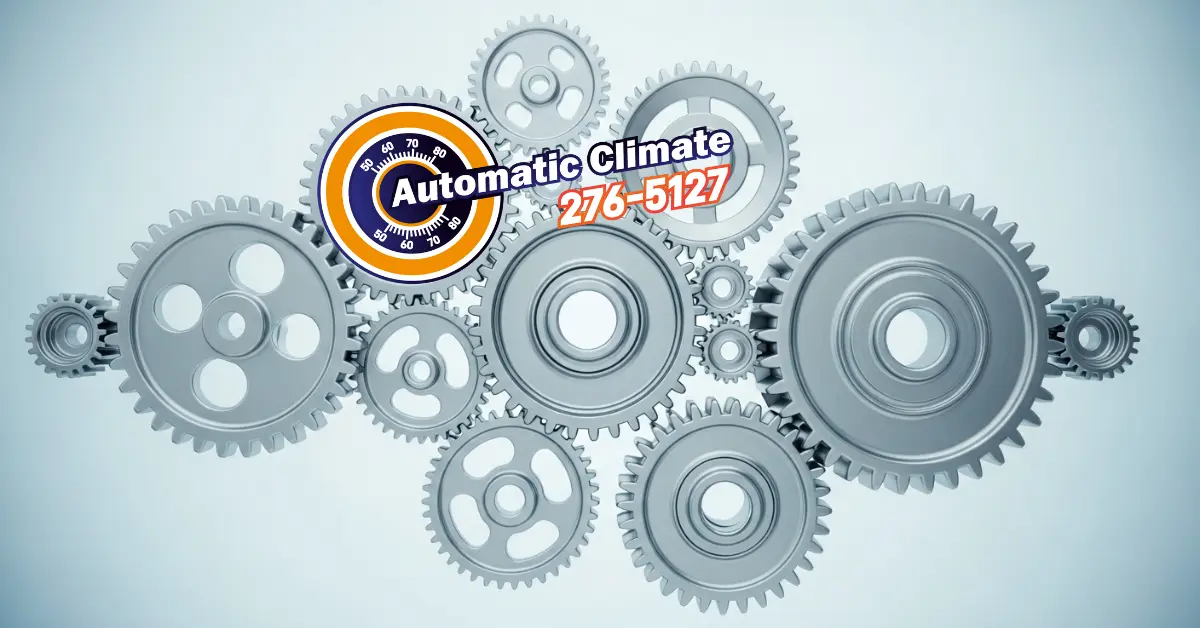
3. The unit is humming but the fan on my outside AC unit not running. What does that mean?
A humming sound indicates the unit is receiving power and trying to start. This strongly suggests the problem is either a failed run capacitor (most likely) or a seized fan motor. The motor is trying to turn but doesn’t have the starting torque.
4. Is it safe to run my AC if the outside fan isn’t working?
No, turn the system off immediately. Without the fan, the compressor can’t dissipate heat, which will cause it to overheat rapidly. Most modern systems have a safety switch that will shut the compressor down, but continuing to run it risks catastrophic failure of the most expensive part of your AC.
5. How much does it cost to fix an AC fan that isn’t running?
Costs vary widely depending on the cause. A capacitor is a relatively inexpensive part, while a fan motor replacement is significantly more. The best course of action is to get a professional diagnosis from a company like Automatic Climate for an accurate quote.
6. My breaker tripped for the AC unit. What should I do?
You can try resetting it once. If it trips again right away, leave it off and call a professional. A repeatedly tripping breaker indicates a serious electrical fault, like a short circuit, that could be a fire hazard.
7. Could a dirty filter cause the outside fan to stop working?
Indirectly, yes. A severely clogged indoor air filter restricts airflow, forcing the entire system to work harder and run longer. This added strain and heat can cause components in the outdoor unit, like the capacitor and fan motor, to fail prematurely. So while not a direct cause, it’s a major contributing factor to why the fan on my outside AC unit not running.
8. What is a contactor and could it be my problem?
A contactor is an electrical switch that sends power to the fan and compressor when the thermostat calls for it. If it fails, the outdoor unit won’t get power, even if the breaker is on. This is a likely culprit if the unit is completely silent (no hum).
9. How often should I have my AC unit professionally serviced?
It is recommended to have your HVAC system professionally serviced at least once a year, typically in the spring for your AC and in the fall for your furnace. This preventative maintenance can prevent most causes of the fan on my outside AC unit not running.
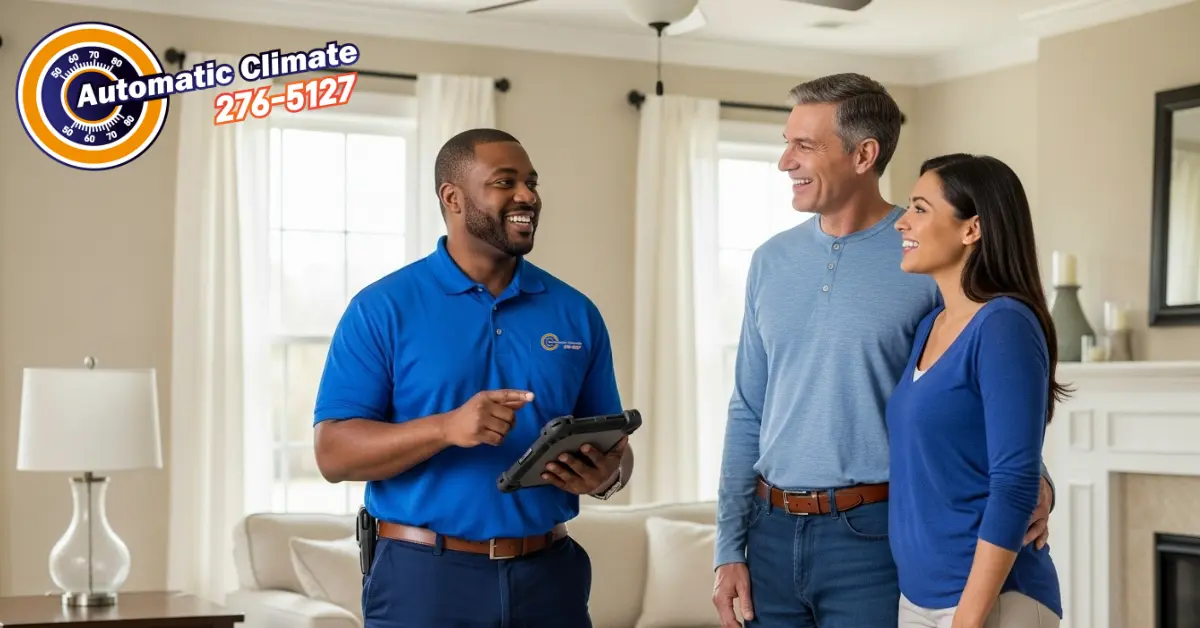
10. The fan blades are bent. Is that a big deal?
Yes. Bent fan blades will be unbalanced, causing heavy vibration. This can destroy the fan motor bearings and put stress on the entire unit. The blades should be replaced by a professional.
11. My AC is frozen, and the fan isn’t running. What’s the issue?
Turn the system off, but leave the indoor blower fan on to help it thaw. A frozen unit is usually caused by restricted airflow (dirty filter) or low refrigerant. The fan issue might be a separate problem or related to the system locking up. This definitely requires a professional.
12. Can a power surge damage my AC fan motor?
Absolutly. Power surges from lightning or grid issues can fry the sensitive electronics in your AC unit, including the fan motor and control board. A whole-home surge protector is a good investment to protect your HVAC system.
13. Is my AC unit too old?
Most central air conditioners last 15-20 years. If your unit is in that age range, a problem like the fan on my outside AC unit not running could be a sign that it’s time to consider a replacement rather than continuing with expensive repairs.
14. What’s the difference between a fan motor and a compressor?
The fan motor’s only job is to spin the fan blades to move air. The compressor is the “heart” of the system; it pumps refrigerant through the coils to move heat. Both are in the outdoor unit. The fan motor is much less expensive to replace than the compressor.
15. Can I replace the capacitor myself?
While many people do, it’s risky if you’re not experienced. Capacitors can hold a lethal electrical charge. You must know how to safely discharge it. For safety, we always recommend professional service.
16. Does my thermostat battery affect the outside fan?
Yes. If the thermostat has no power, it can’t send the signal to the contactor to turn the outdoor unit on. If your thermostat has a blank screen, replacing the batteries is the first thing you should do.
17. Why would my fan run for a few minutes and then shut off?
This could be a motor that is overheating and shutting down on its thermal overload protector. It cools off, starts again, and repeats the cycle. This is a sign of a failing motor or poor airflow.
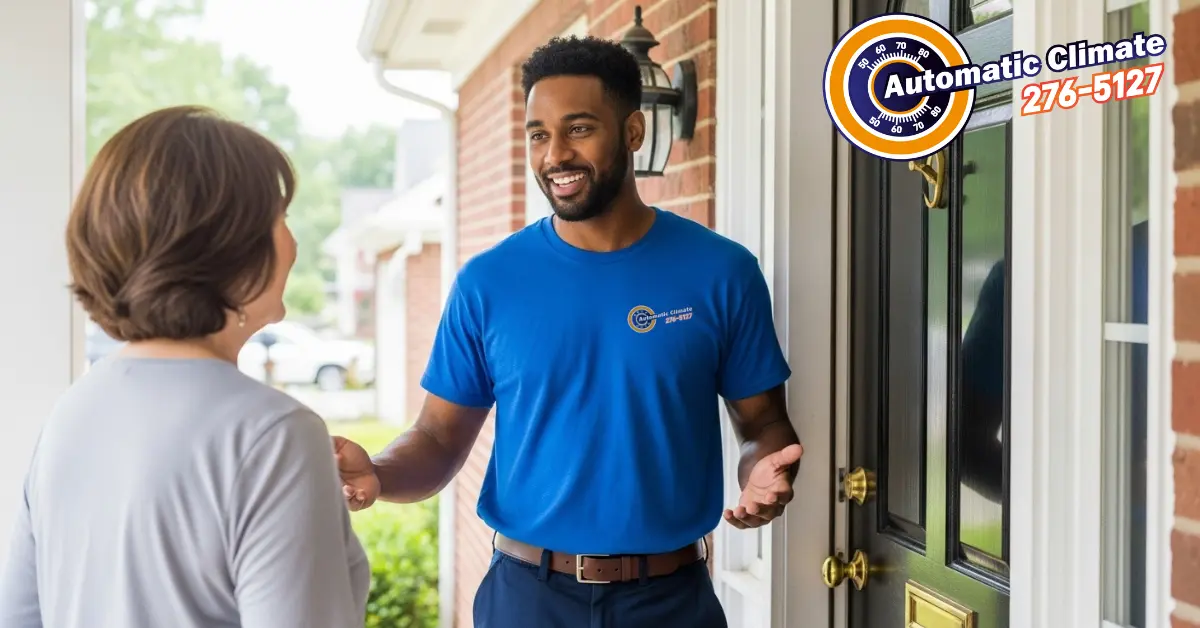
18. Is there a reset button on the outside unit?
Some older units have a high-pressure reset button, often located near the refrigerant lines. However, if this has tripped, it indicates a bigger problem (like the fan not running) that needs to be fixed. Simply pressing the reset is not a long-term solution.
19. Could a refrigerant leak cause the fan to stop?
Not directly. A refrigerant leak will cause your AC to stop cooling and may cause the coils to freeze over, which could physically block the fan. However, the fan motor itself doesn’t rely on refrigerant to run. So it’s a related, but separate, serious issue.
20. Who should I call when the fan on my outside AC unit not running?
You should call a qualified, licensed, and insured HVAC professional. For residents in the Richmond area, Automatic Climate has been a trusted choice since 1983 for reliable and expert service.
Sources: FAQ compiled from questions asked on platforms like Bob Vila and common homeowner queries.
Additional Resources & Further Reading
For more in-depth information, please consult these authoritative sources:
- How to Repair a Central Air Conditioner – Family Handyman
- How to Troubleshoot a Central Air Conditioner – This Old House
- Central Air Conditioner Won’t Turn On – HomeTips
- How to Clean an AC Unit for Better Performance – Better Homes & Gardens
- Solved! What to Do When an AC Not Cooling – Bob Vila
- Troubleshooting a PSC Condenser Fan Motor – ACHR News
#HVAC
#FanNotRunning
#HVACTips
#RichmondVA
#HomeMaintenance
Legal Disclaimer:
This article was drafted with the assistance of a Large Language Model, specifically Gemini, which was used for initial drafting and article outlining. The content was subsequently reviewed, edited, and fact-checked by a human writer to ensure accuracy, clarity, and adherence to editorial standards. While AI assists in the creation of this content, the human author(s) retain editorial control and full responsibility for the final content, including its accuracy and integrity. Readers should be aware that AI-generated content may present limitations, and the information provided should be considered with this in mind.
The information provided in this article is for general informational purposes only. While we strive to keep the information up-to-date and correct, we make no representations or warranties of any kind, express or implied, about the completeness, accuracy, reliability, suitability, or availability with respect to the 1 article or the information, products, services, or related graphics contained in the article for any purpose. Any reliance you place on such information is therefore strictly at your own risk. 2 HVAC systems involve electrical components, refrigerant, and potentially natural gas; attempting repairs without proper training and safety precautions can result in injury, property damage, or voiding warranties. Always consult with a qualified and licensed HVAC professional, like those at Automatic Climate (https://www.automaticclimate.com/, (804) 803-1983), for diagnosis and repair of HVAC issues.
Our Trusted Partners
EXCELLENTTrustindex verifies that the original source of the review is Google. Aaron J. Visited our home later this evening to follow up with today’s install and the system checked out as it should. The only issue we had was connecting and setting up the wireless thermostat due to the app issues. He was very professional and patient. John and Joe replaced our 2nd floor gas heating system in a professional manner. Everything went smooth according to them and they finished the job in less time than expected. Aaron was professional and extremely thorough during his visit to our home. He took the time to explain the workings of our HVAC system and answered every question. To add to the above, I called the office and spoke with both Austin and Jason who were also very helpful while explaining the warranty and transfer of same. We are extremely pleased with Automatic Climate and will highly recommend to anyone who may ask for recommendations.
Owner's reply
Thank you for sharing your positive experience! We're thrilled Aaron, Austin, and Jason could assist you so thoroughly. Your recommendation means a lot, and we're glad we could help with your HVAC system and warranty details.Posted onTrustindex verifies that the original source of the review is Google. I had a very positive experience with them. They had better financing options, better prices, and were more responsive than other companies I got quotes from. Michael Chris and the whole team were fantastic. Highly recommendPosted onTrustindex verifies that the original source of the review is Google. Technician was on time, personable and professional. He throughly explained everything that he was going to do and identified any concerns. Very pleased with the overall experience and would recommend to other homeownersPosted onTrustindex verifies that the original source of the review is Google. I had the coils cleaned in my tankless water heater. Aaron Jernigan was so seemingly competent, so well-mannered, so good explaining what was going on, I am considering switching to Automatic Climate, I will definitely have all the vents in my house blown out in the near future.Posted onTrustindex verifies that the original source of the review is Google. Fast, friendly, knowledgeable and professional. Their associate, Casey J, helped fix our heat when we were enduring 20-30 degree nights. Thank you so much!!Posted onTrustindex verifies that the original source of the review is Google. Charlie was very dedicated. Provided excellent service. Very impressed with his dedication. Did check on HVAC and cleaned drier vent in Condo we purchased last summer.Posted onTrustindex verifies that the original source of the review is Google. I've been a customer of Automatic Climate for several years. I value the services of this firm. My commitment to renewing my maintenance contract year after year is directly related to the technical expertise of one of the company’s many representatives, Antonio Diaz. Antonio has kept all three of my units running smoothly for years, and when necessary forewarns me early of any pending issues. He offers solutions right away without long waits for follow up. I've never had to call the company back to correct any of his work. Antonio attributes his success and extraordinary customer service to the culture of Automatic Climate. I would recommend Antonio and Automatic Climate to any of my friends and neighbors. They're a company you can trust.
Owner's reply
Thank you so much for your kind words! We're thrilled to hear you had a positive experience with our service.Posted onTrustindex verifies that the original source of the review is Google. John & Nick were here today to clean our air ducts. They were very thorough and made sure that they left our home as clean as when they arrived. They explained the process clearly and worked efficiently. Great job!Verified by TrustindexTrustindex verified badge is the Universal Symbol of Trust. Only the greatest companies can get the verified badge who has a review score above 4.5, based on customer reviews over the past 12 months. Read more
